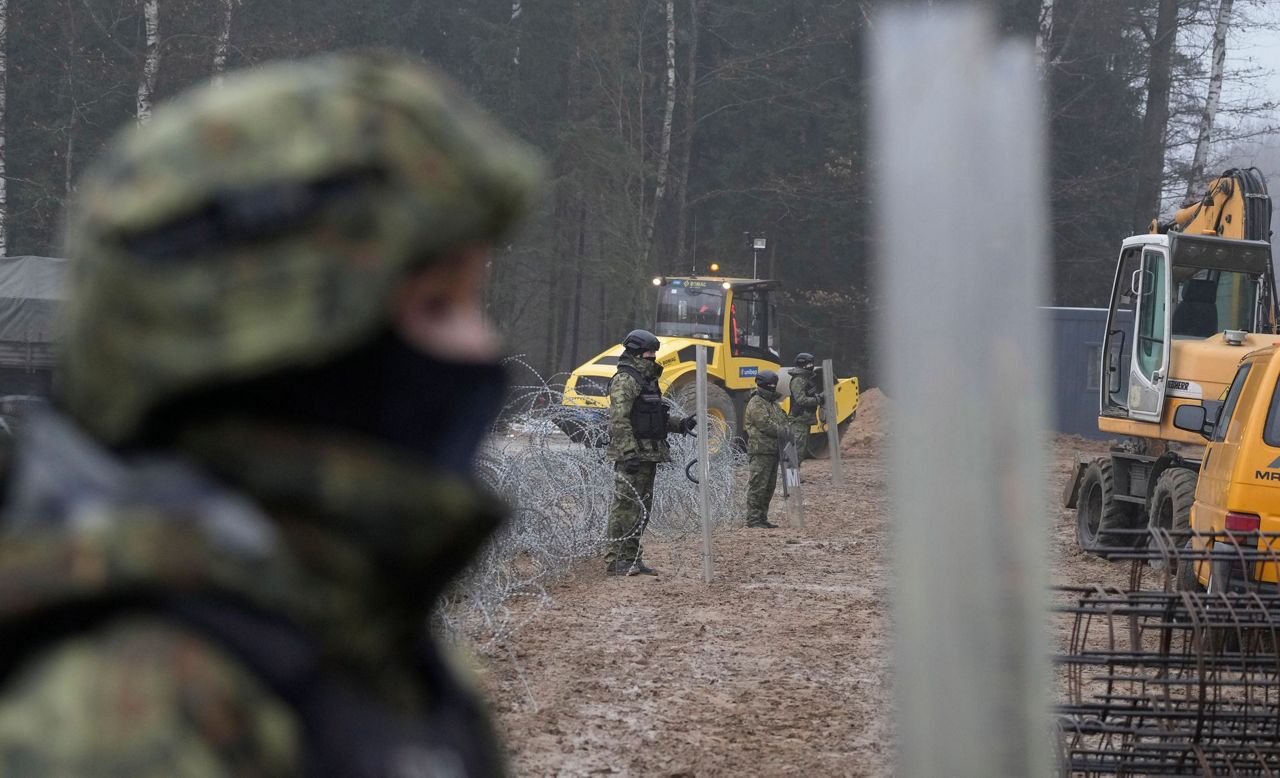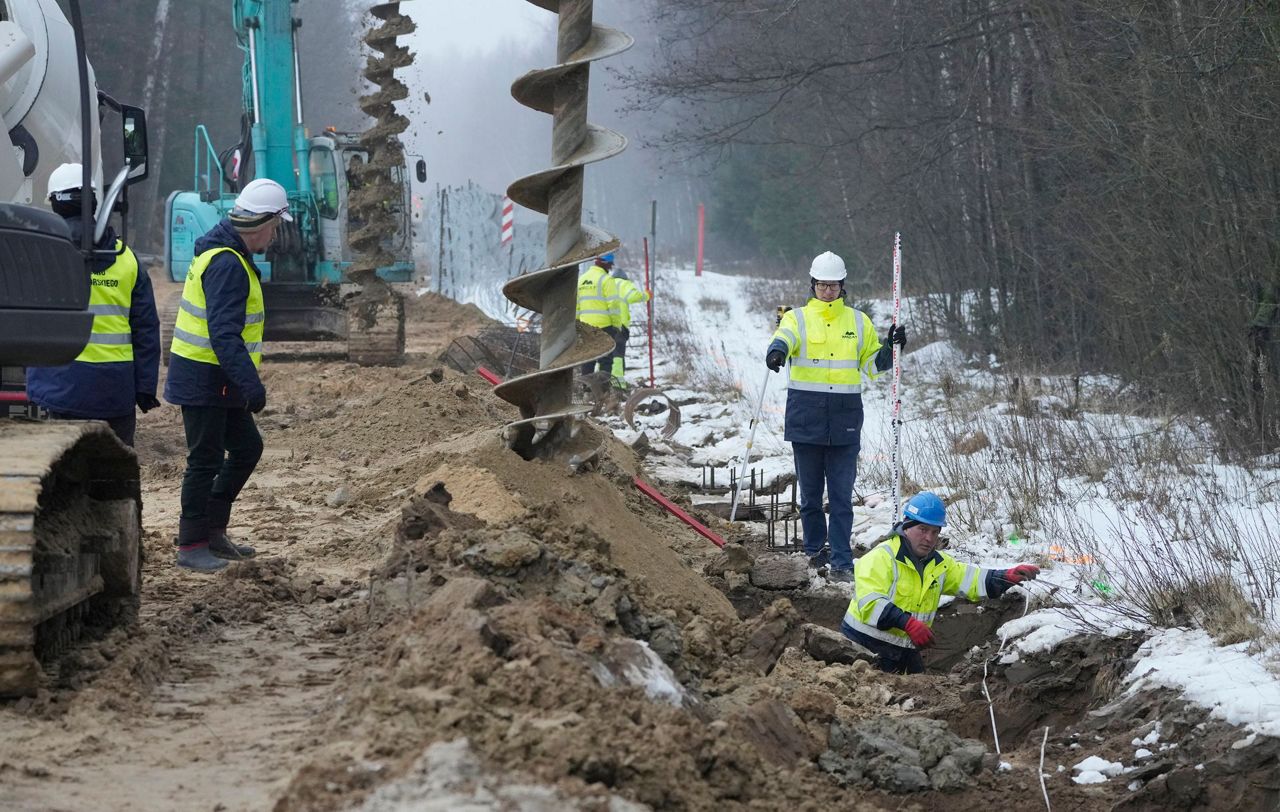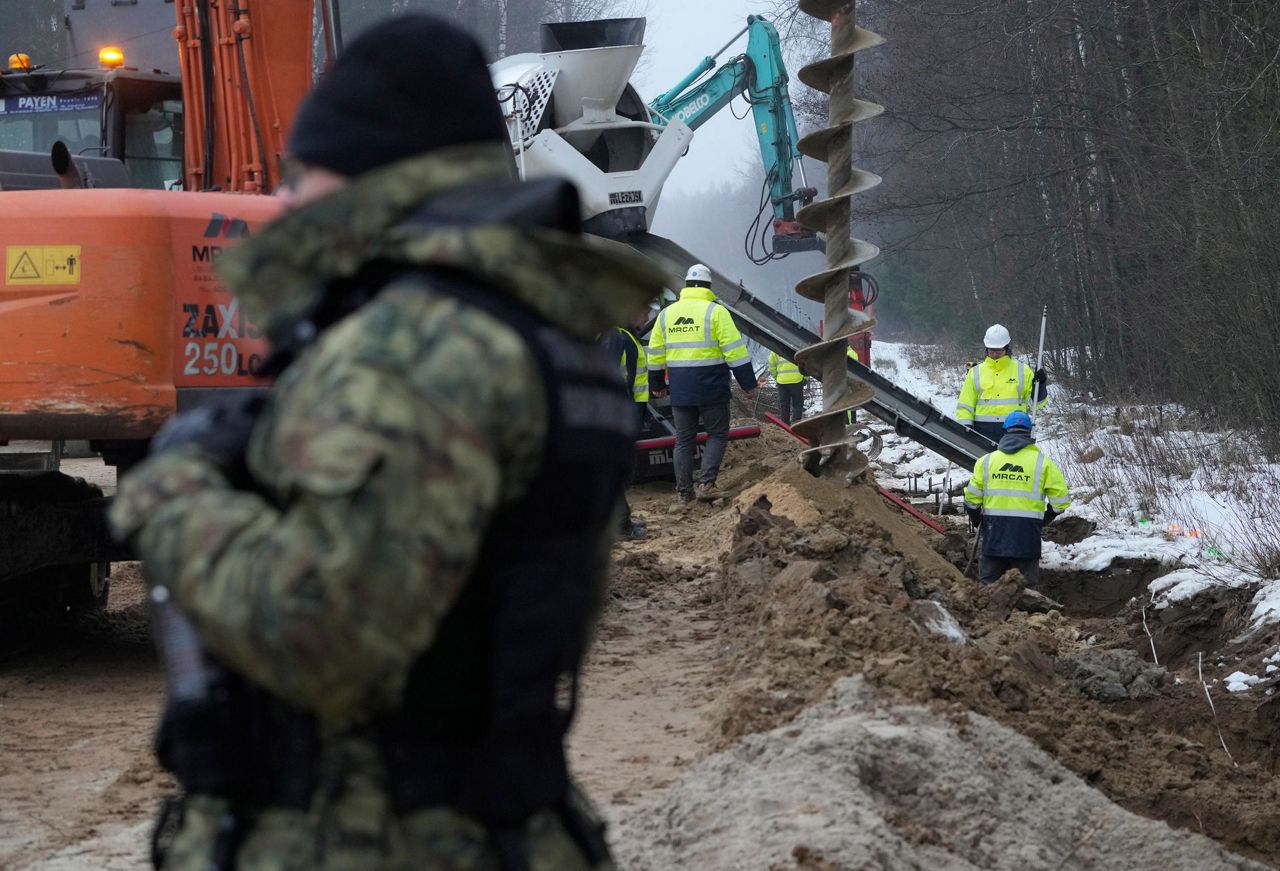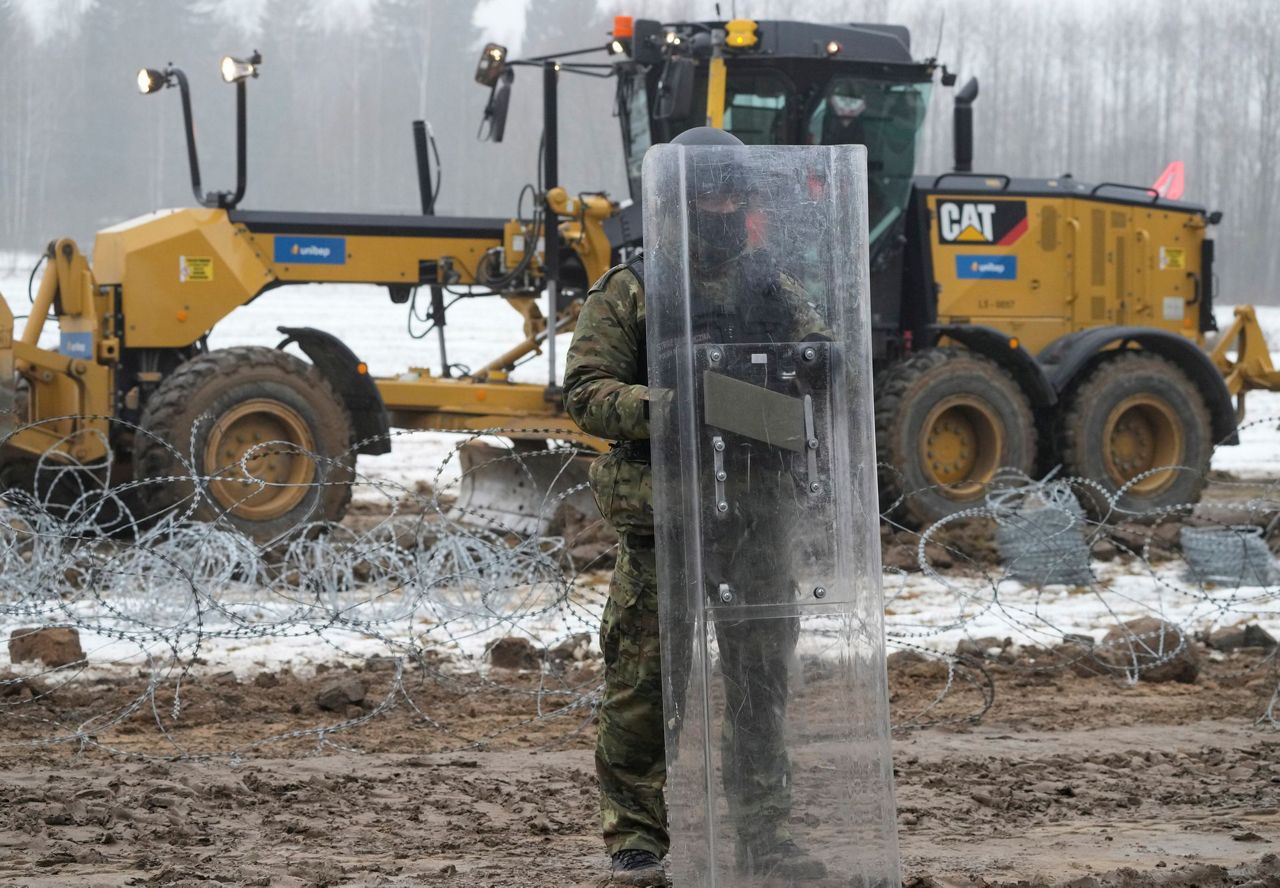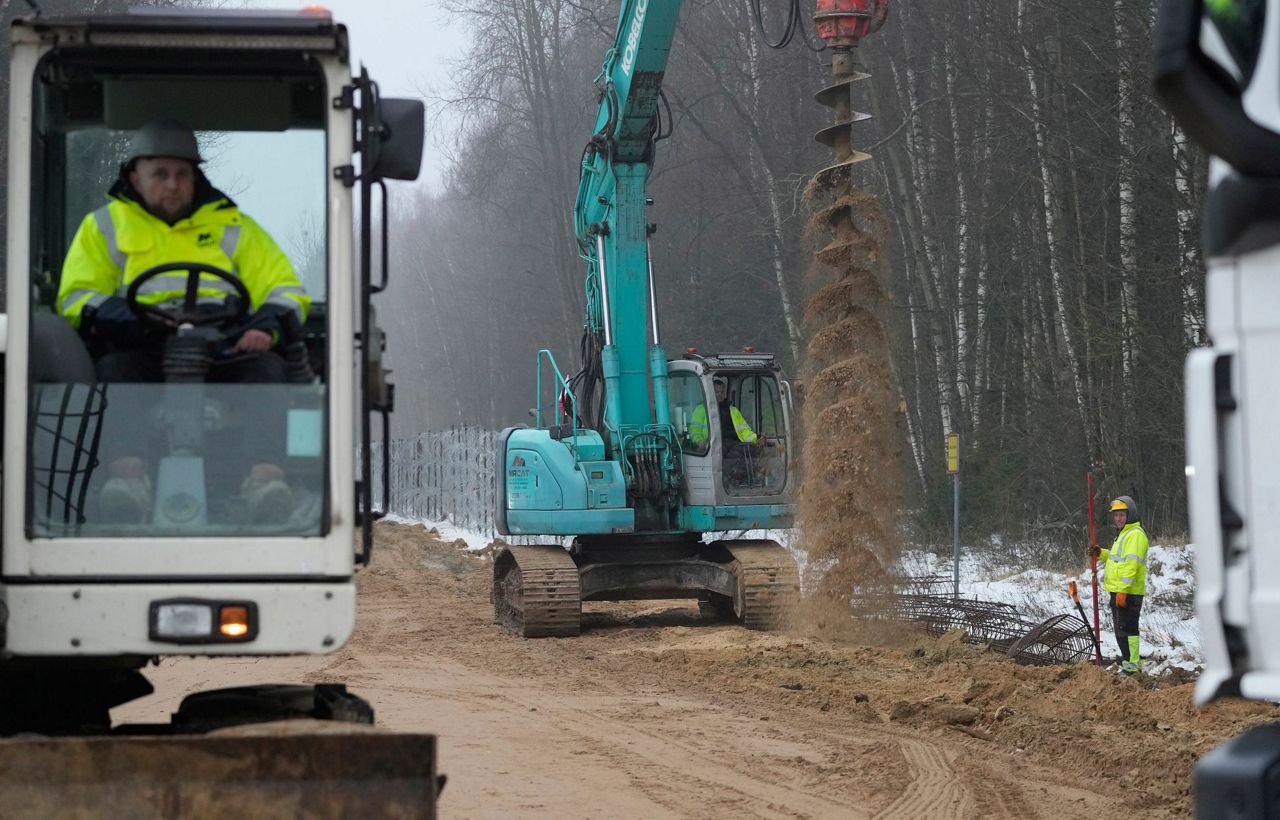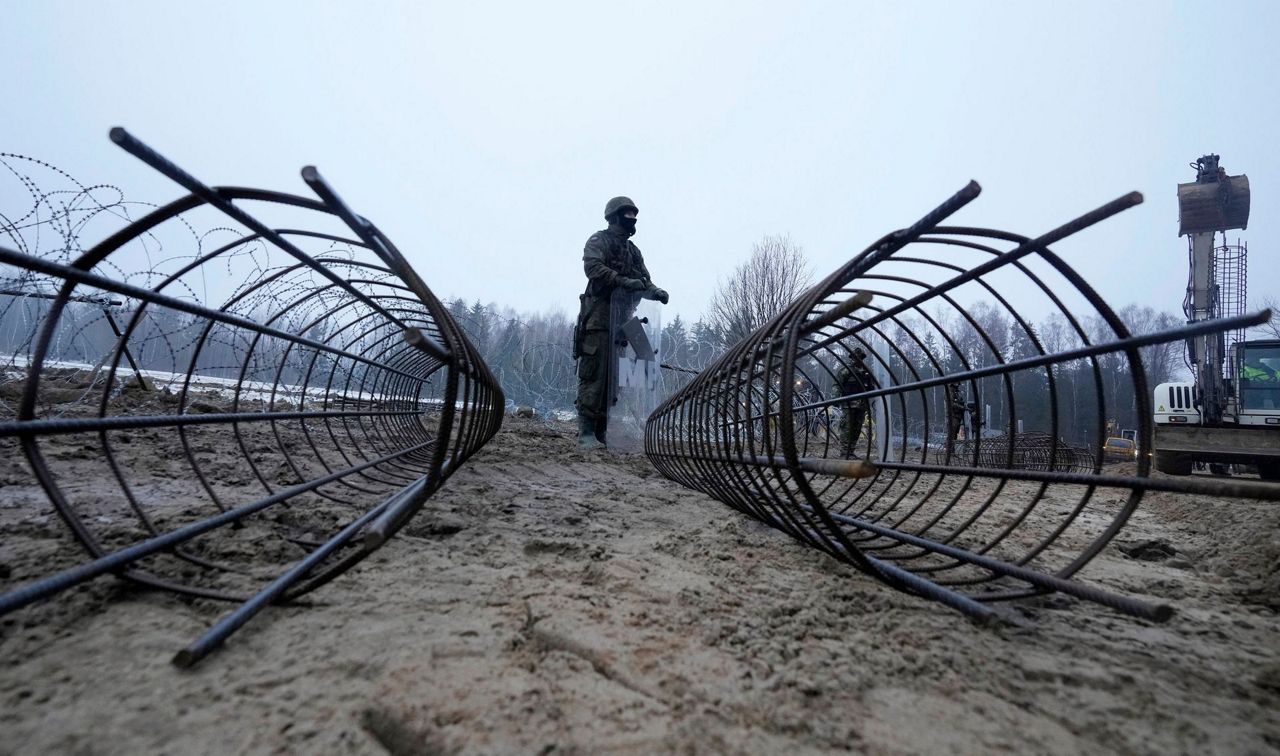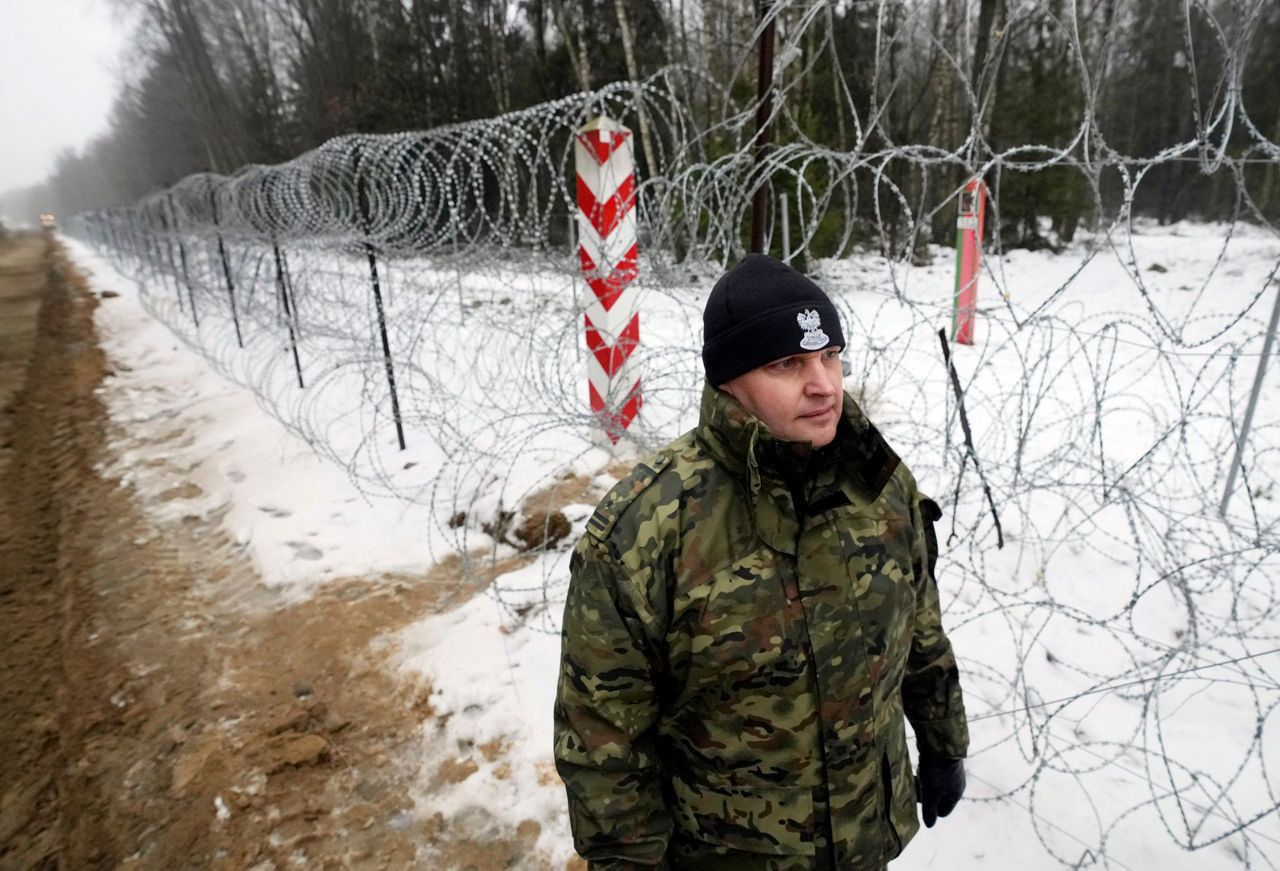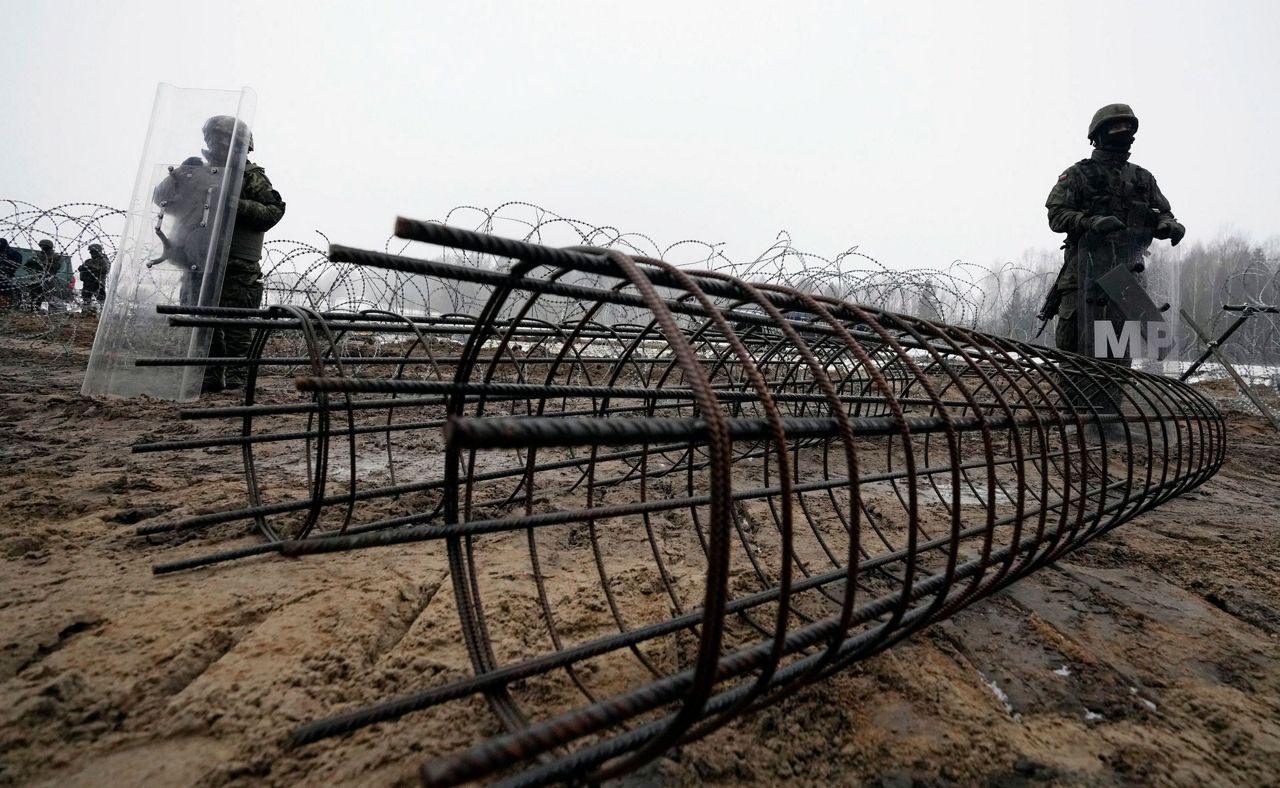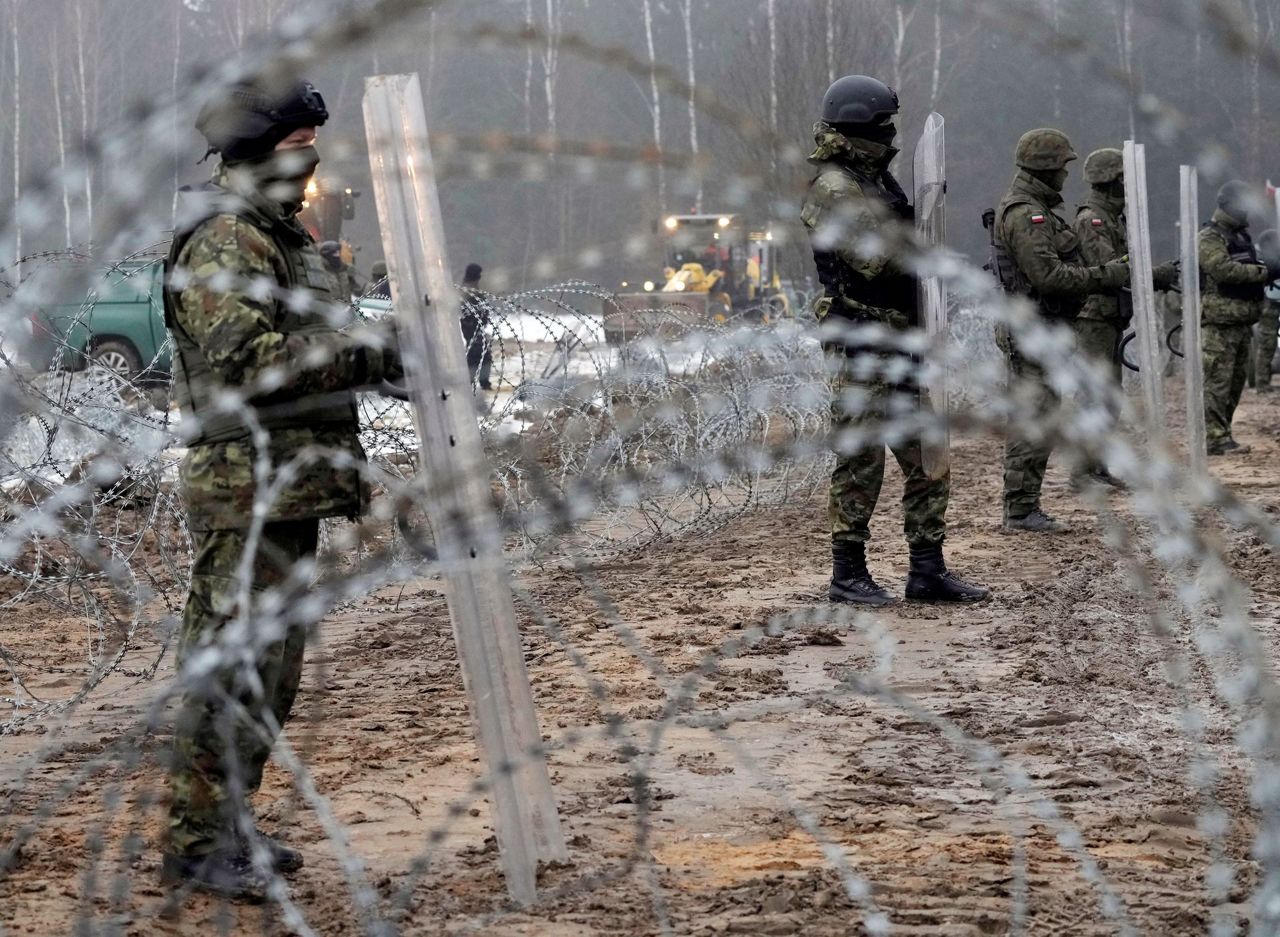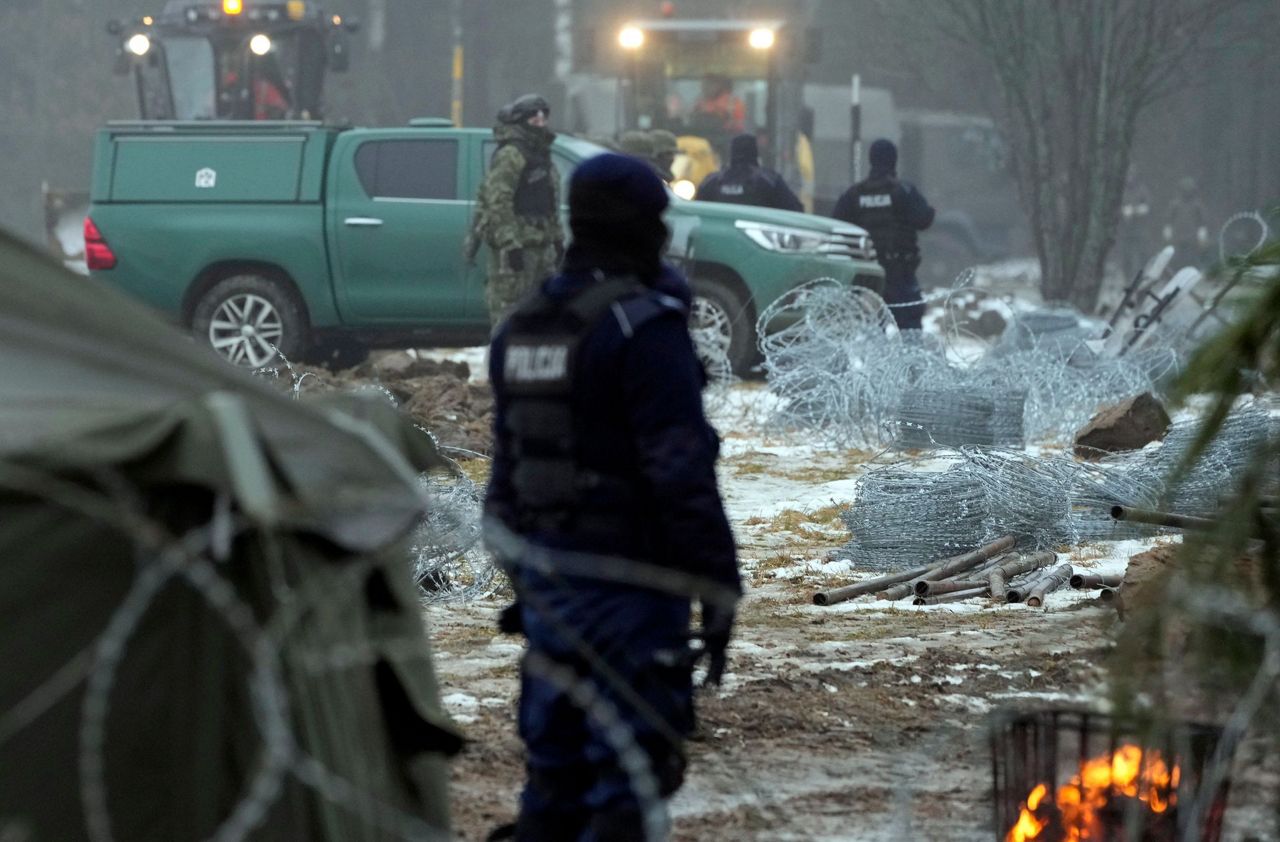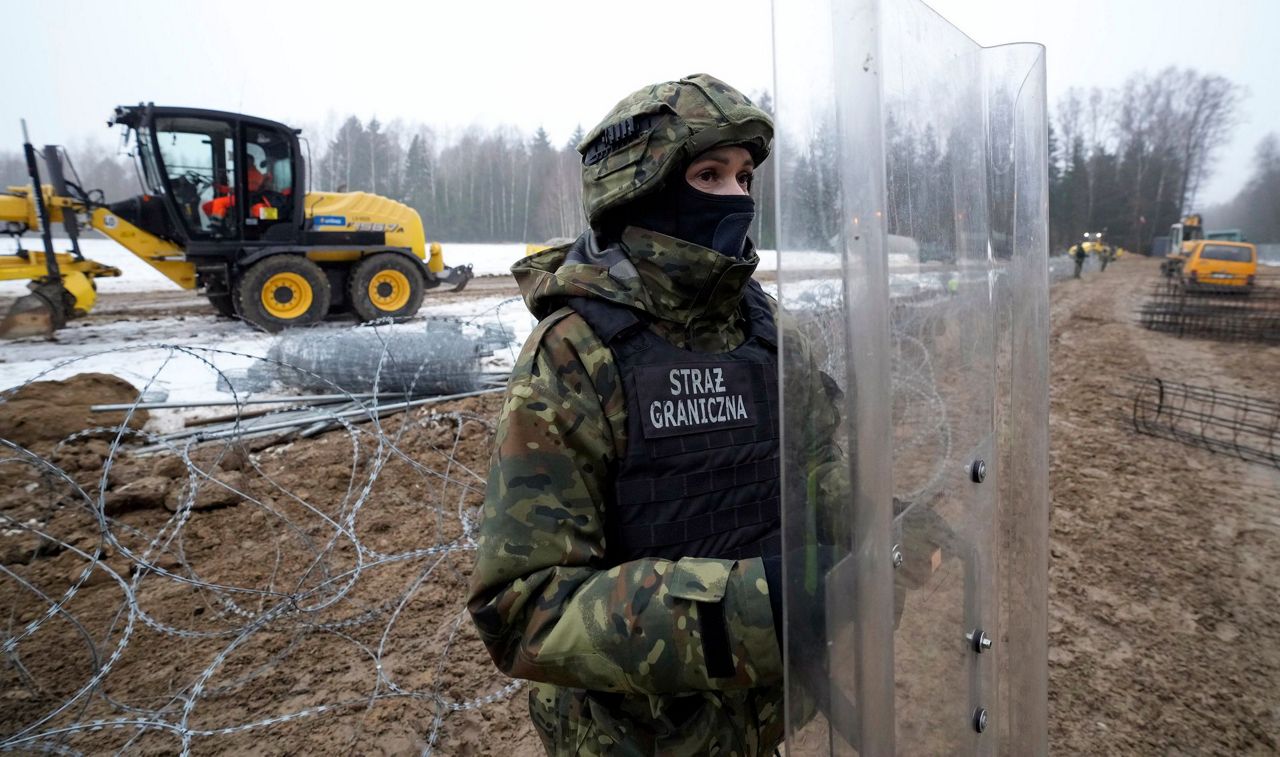KUZNICA, Poland (AP) — Construction workers with heavy machinery have started work on Poland’s border with Belarus on a $394 million wall to stop migrants pushed across by Belarus in what the European Union calls a “hybrid attack.”
Reporters were allowed Thursday to see the work in the village of Tolcza, near the closed border crossing of Kuznica in eastern Poland.
Border guards and the military patrolled as excavators and cranes prepared the ground for the metal wall that Poland’s right-wing government says will serve the interests of all of the EU. Bloc member Poland is opposed to taking in large numbers of migrants.
“The Belarusian side is ready to do anything when it comes to provocations, so we have to be ready for any kind of event,” said Maj. Arkadiusz Tomaszewski, deputy commander of the Border Guard in Kuźnica, where clashes with migrants and Belarusian security officers took place last year.
The 5.5-meter (18-foot) high metal wall topped with barbed wire will run more than 180 kilometers (115 miles) along the land part of the border, which also includes the Bug River. Cameras and electronic alarm systems are to be added.
Two construction companies will work on it around the clock. It is due to be completed in June, at a cost of some 1.6 billion zlotys ($394 million.)
European nations, facing a continuing inflow of migrants and refugees, are debating stepping up external border protection, tightening travel rules within Europe’s passport-free Schengen zone and introducing stricter rules for returning migrants to their countries of origin.
During the 2015 massive inflow of migrants to the EU, Hungary drew condemnation when it built a wall on its borders with Croatia and Serbia to block migration routes.
Pressure from thousands of migrants from the Middle East and Africa on Poland’s and Lithuania's wooded borders with Belarus began in the summer, leading to clashes with Poland’s border guards. The migrants are mostly headed for Germany.
Last year, Lithuania started building a wall on its frontier with Belarus, while Poland sealed its border with Belarus using razor wire, increased the number of guards and restricting access to the frontier.
The EU says the migrants are being used by Belarus' authoritarian leader to destabilize the 27-member bloc in retaliation for its sanctions on Minsk following an election widely seen as rigged, and a clampdown on opposition protests.
At least 12 migrants have died in the wooded border area and conditions have got worse in sub-freezing winter temperatures.
Critics and environmentalists say the wall will fail to stop migrants, but will harm one of Europe’s last pristine woodlands, the Bialowieza forest.
Natalia Gebert, from the Grupa Granica (The Border Group) that brings aid to migrants and asylum-seekers in Poland, says the wall “stops only the disabled, the weak, the sick.”
"It doesn’t stop desperate people who are fleeing danger from trying to cross,” Gebert told The Associated Press.
She said that in the first three weeks of 2022 the group received requests for help from nearly 350 people, including 51 children.
Kalina Czwarnog of the Ocalenie (Deliverance) Foundation said the money for the wall could be better spent on ways of managing migration in a “humanitarian way and in line with international law.”
___
Follow AP’s global migration coverage at https://apnews.com/hub/migration
Copyright 2022 The Associated Press. All rights reserved. This material may not be published, broadcast, rewritten or redistributed without permission.



